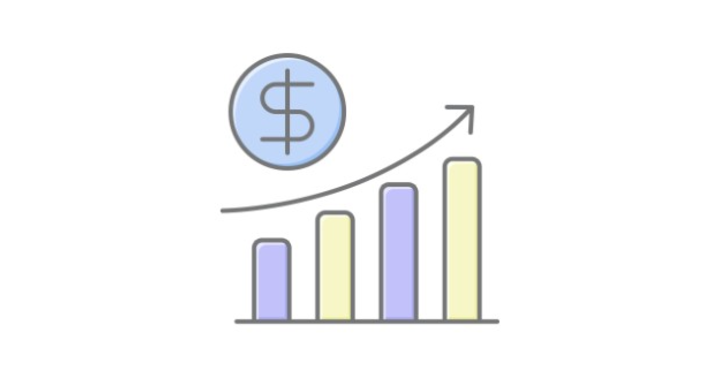Researcher And Former Hospital Executive Morley Robbins Reveals The Hidden Dangers Of Iron And What You Can Do About It

Host of The Deep Wealth Podcast and post-exit entrepreneur Jeffrey Feldberg does a deep dive on the hidden dangers of iron in your body and what you can do about it. Our special guest is Morley Robbins, also known as the Magnesium Man. Morley has dedicated his life to educating people on the importance of these minerals through the Root Cause Protocol. He is here to share his expertise on how mineral imbalances can affect our health and what we can do about it.
Morley Robbins is a health expert known for his focus on magnesium's role in the body. He created the Root Cause Protocol, which addresses issues related to mineral imbalances. With over 7,500 consultations under his belt, Morley has helped people all over the world. His work emphasizes the importance of copper, magnesium, and iron in preventing health issues like inflammation and chronic diseases.
Morley Robbins is an expert in magnesium and its crucial role in our health. He created the Root Cause Protocol, which focuses on the interaction of minerals like iron and copper. "My work emphasizes the importance of copper, magnesium, and iron in preventing inflammation and cellular metabolic dysfunction," says Morley.
Morley's journey began after a personal health crisis that led him to discover the transformative power of magnesium and natural healing. He transitioned from a 32-year career in hospital administration to natural healing. Since then, he has educated millions on overcoming fatigue and chronic diseases by addressing mineral imbalances. "It's all about getting the right minerals in your body, especially copper and magnesium," Morley explains.
The Importance of Magnesium, Copper, and Iron
Morley Robbins shared, “What I'm trying to do is really simplify the model. People don't realize that when push comes to shove, most of the problems we have in our body come from a dysregulation of copper and iron.”
Morley explains that copper is crucial for our metabolism. Copper helps turn oxygen into water which is essential for energy production in the body. Without enough copper, iron and oxygen can cause harmful rusting effects inside our bodies.
The Problem with Too Much Iron
Having too much iron in our bodies can be dangerous. Even if we have enough copper and magnesium, an excess of iron can cause us to "rust from the inside out." This rusting can lead to aging faster and getting sick more easily.
Jeffrey Feldberg, our podcast host, summed it up well: “Even if we have enough copper and we're doing all the right things, if we have an iron buildup, it's like we're rusting from the inside out.”
Our bodies accumulate iron naturally as we age. This iron build-up can cause serious health issues, such as causing our bodies to "rust" from the inside out. "Think of trying to manage wealth without compound interest – it's nearly impossible!" says Morley. Just like how compound interest is crucial for managing money, balanced iron levels are crucial for our health.
Morley explains that oxygen is not our friend; it is a poison needing to be turned into water for us to release energy. Copper is the only element able to convert oxygen into water, keeping iron in check and preventing it from creating rust inside our bodies. "When there isn't enough copper, our bodies can't regulate iron and oxygen, causing cellular damage," Morley cautions.
How to Reduce Excess Iron
One simple way to get rid of excess iron is by donating blood. Donating blood removes some iron from your system, making room for new, healthier red blood cells. Morley recommends donating blood quarterly for men and post-menopausal women. For women who still have their regular cycles, donating blood twice a year can be beneficial.
“When you donate blood, you're going to lose 500 cc's of blood, which is about 250 milligrams of iron. The body compensates for that loss by making new red blood cells,” Morley explained.
For men and post-menopausal women, donating blood is a powerful way to manage iron levels. Donating blood helps remove excess iron, which can otherwise harm your health. "I donate blood quarterly, and it's a very beneficial practice," Morley advises. Even menstruating women can benefit from donating blood twice a year to keep iron levels in check.
"People think donating blood will hurt them, but it actually benefits four people: three who receive the blood and the donor who lowers their iron levels," Morley explains. Blood donations initiate a healthy recycling process in the body. "When you donate blood, your body releases erythropoietin (EPO), a hormone that signals the bone marrow to make new red blood cells, improving energy levels," says Morley.
Morley shared a fascinating tidbit from history. Barbershops used to let blood while cutting hair as a form of ancient health practice. The spinning red, blue, and white poles outside barbershops indicate this history. The red symbolizes blood, as barbers would let out some of your blood while you got a haircut.
## The Role of Modern Diets
Today's diets often contain hidden iron. Many foods are fortified with iron, sometimes more than we need. Reading labels and avoiding foods labeled as "fortified with iron" can help manage your iron levels.
Morley emphasized, “We've been trained to believe we need more iron. But the truth is, we usually already have too much.”
Our modern diet is another major source of excess iron. "Most of the iron in your diet comes hidden in fortified foods," Morley warns. Foods labeled as "fortified" or "enriched" with iron can dramatically increase your iron intake, leading to build-up.
Morley suggests being mindful of food labels and avoiding products with synthetic B vitamins and iron fortification. Instead, opt for natural sources of vital nutrients. "Bee pollen or B fiber are excellent natural sources of B vitamins," Morley recommends.
If you start donating blood regularly and maintaining a proper diet, you may start to notice changes in how you feel. Over time, reducing iron levels can lead to feeling more energetic and less prone to illnesses.
“By the end of the year, I felt like a million dollars. My bilirubin was normal for the first time in my life, and my red blood cells were at a healthy level,” Morley shared from his personal experience.
Copper: The Unsung Hero
Copper is essential for a healthy metabolism. "Copper is like compound interest for your metabolism," says Morley. Unfortunately, due to changes in farming and food processing, our diets lack sufficient copper. Increasing your copper intake can help balance iron levels in your body.
"Copper helps convert oxygen into water, allowing cells to release energy efficiently. It also keeps iron in check, preventing oxidative stress," explains Morley. To boost copper in your diet, include foods like liver, oysters, spirulina, and mushrooms.
To maintain optimal health, Morley advises focusing on balancing iron and copper levels in the body. "Donating blood every three months and increasing copper intake can help prevent rusting from the inside out," says Morley. This simple routine can rejuvenate your tissues, improve energy, and slow aging.
Furthermore, managing stress and emotions is crucial. "Fear increases iron accumulation. Releasing stress through techniques like EFT (Emotional Freedom Techniques) or EMDR (Eye Movement Desensitization and Reprocessing) can help maintain balance," Morley explains.
Managing your mineral levels can lead to a healthier life. Simple steps like donating blood regularly and checking food labels can significantly affect your overall well-being. Remember, maintaining a balance of minerals is key to preventing chronic diseases and staying healthy.
By understanding the importance of mineral balance, you can take simple yet powerful steps to improve your health. Donate blood regularly, avoid fortified foods, and increase your copper intake for a more vibrant, energetic, and healthy life.
Remember, your health isn't just about avoiding disease; it's about creating a vibrant, energetic body that can support you in living your best life. "Managing your health is like managing your wealth – both require balance and the right strategies," says Morley Robbin
Jeffrey wrapped up the episode beautifully, “Food is medicine. The right diet with the right minerals can help our bodies do what they're meant to do. And something as simple as donating blood every three months can have a huge impact.”
Thank you for joining us on this journey to better health. Remember, your wealth isn't just the money in the bank; it's about the depth of your journey and the impact you're creating. Stay healthy and safe, Deep Wealth Nation!
**
What if 90 days was all it took to radically transform your business's profitability? Discover Deep Wealth Mastery, the only system derived from a 9-figure deal. Ready to welcome your financial freedom? Start your transformative journey today. Click here to start your journey**_
















